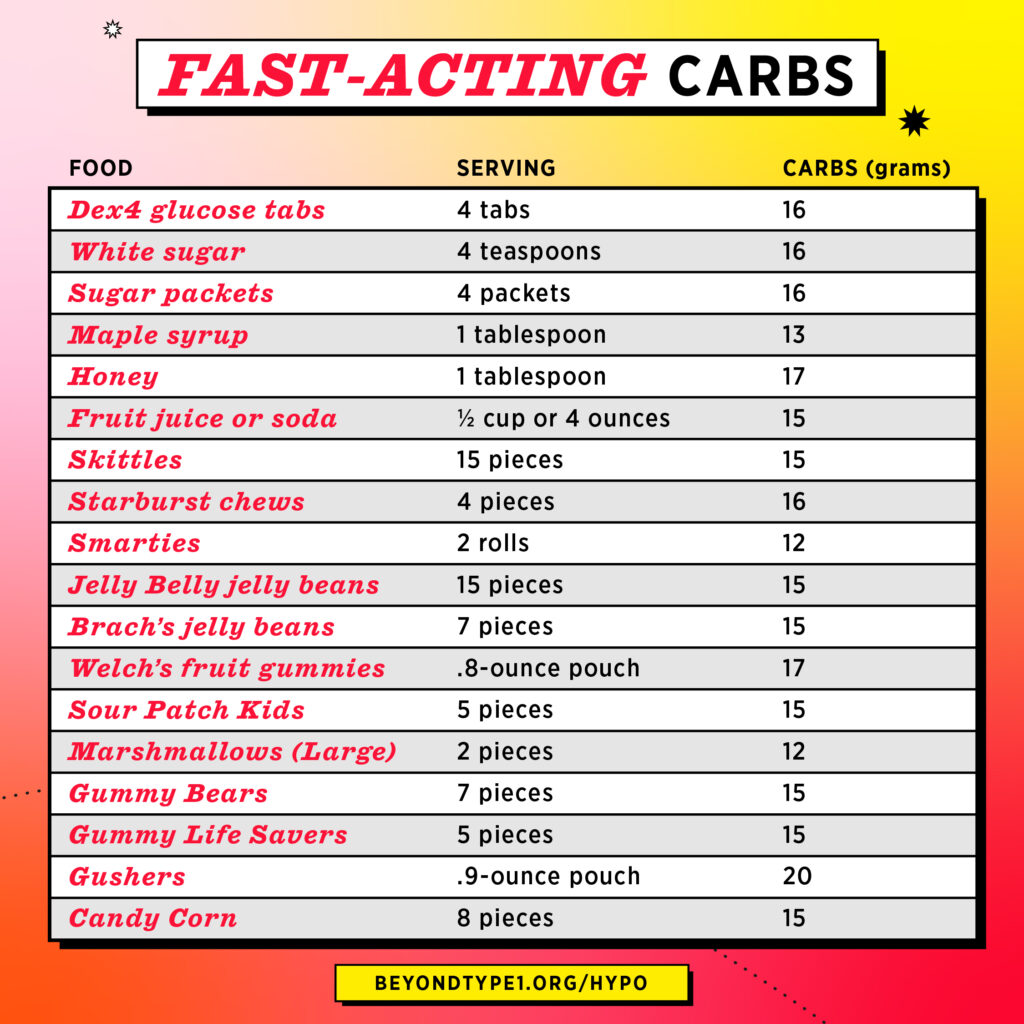What to Eat: Fast-Acting Carbs to Treat Low Blood Sugars
Written by: Ginger Vieira
1 minute read
April 26, 2022
Low blood sugars are the worst. One of the worst things about ’em? That urge to eat everything in sight—which can lead to a stressful blood sugar rollercoaster.
Using fast-acting carbohydrates to treat lows is important because the faster those carbs can be digested, the faster they will raise your blood sugar level.
Here are a variety of fast-acting carbs to keep on hand. Remember, most lows call for about 15 grams of carbohydrate, then wait 15 minutes, then check your blood sugar again. If you’re still low, treat again with 15 more grams of carb.

Educational content related to severe hypoglycemia is made possible with support from Lilly Diabetes, an active partner of Beyond Type 1 at the time of publication. Editorial control rests solely on Beyond Type 1.
Related Resources

The holiday season is filled with celebrations, family gatherings, and plenty of holiday foods. No...
Read more

Managing diabetes is a complex and often overwhelming journey—even nine years after my daughter's diagnosis....
Read more

The holiday season is all about celebration, family, and joy—with a little chaos sprinkled in...
Read more


